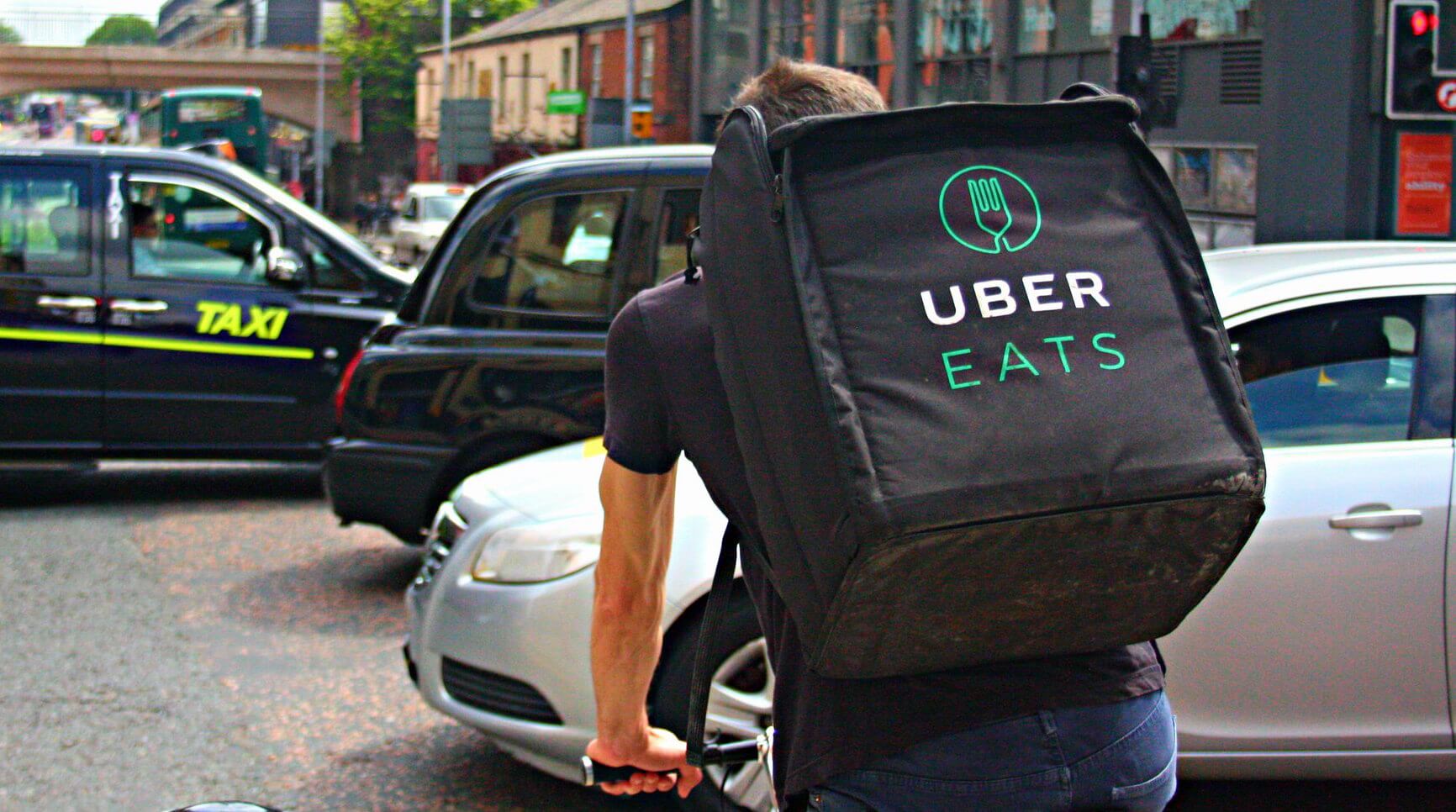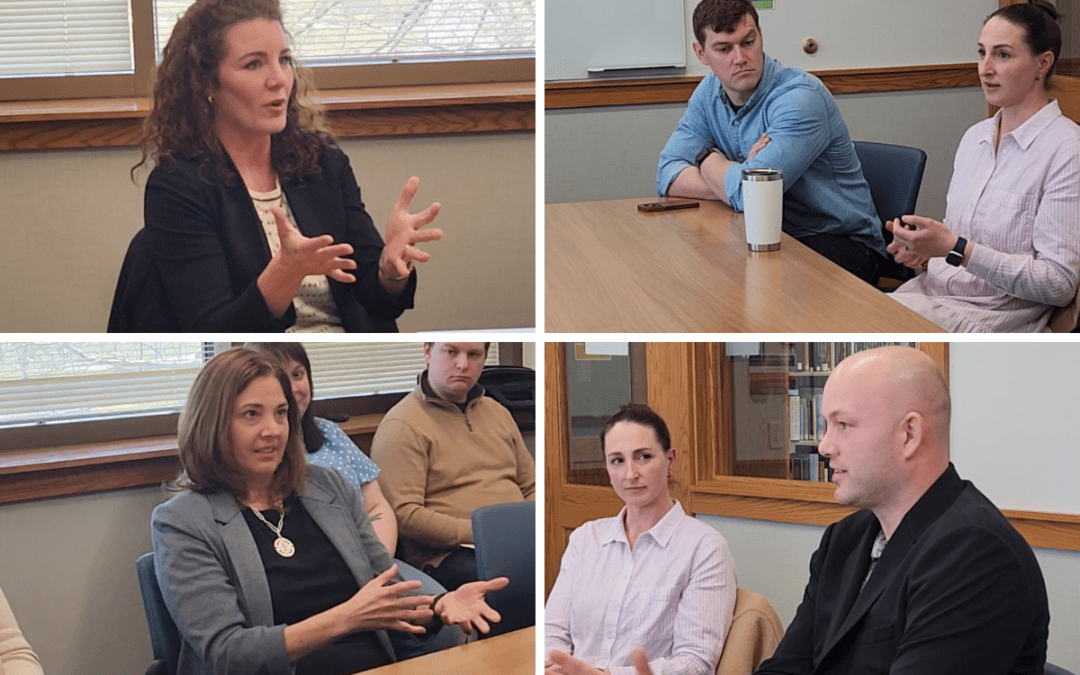
From self check-out lanes at Walmart to automated ordering kiosks at McDonald’s, workers in Iowa and across the country are being replaced by machines.
The idea that automated intelligence is taking over good-paying jobs may seem like something that doesn’t need to be addressed for another decade or two, but one Iowa expert said computers have been stripping workers of their American dreams since the ‘90s.
It started with the advent of the internet, which has pushed most stable jobs out of the economy and has replaced them with “gig economy” jobs from the beginning.
“The internet has allowed consumers to bypass the local mom and pop shops,” said Jay Smith, an attorney who represents several local United Food and Commercial Workers unions in Iowa.
As a result, many of those local stores and the jobs they provide have disappeared.
“There’s going to be other jobs associated with providing the consumer the product that they want, but those jobs are generally paid less and have less benefits than the system that we had for 50 years or however long we’ve had it,” Smith said. “We have this new economy. We have this new technology. But, we don’t have legislation and laws in the books that deal with it and protect workers given the new reality of how companies and multinational corporations are utilizing the technology.”
[inline-ad id=”2″]
Instead of taking orders at McDonald’s, workers are now hired by services such as Grubhub to deliver food from fast food chains and other restaurants directly to the consumers doors. Oftentimes, those delivery services view their workers as “independent contractors” rather than employees, which means the workers don’t get full-time benefits and they don’t have the right to unionize.
Iowa Governor Kim Reynolds actually signed a bill into law in 2018 that defines workers as “independent contractors” if the “designated marketplace” does not specify which hours workers must be on the job.
Since the workers can’t unionize, it’s going to be tough for the workers to make the case they deserve full-time benefits.
[inline-ad id=”1″]
The only way the “gig economy” is going to change, Smith said, is if legislators redefine what an independent contractor is. But he doubts the laws will change in Iowa anytime soon.
“I don’t think at this point, given who is power in the State of Iowa, that the Republican majority and the Governor are concerned about this issue in the least. I don’t,” Smith said. “They’ll cite the low unemployment numbers, but the problem with those numbers is people having to work two and three jobs.”
Secretary-Treasurer of the Iowa Federation of Labor Charlie Wishman also said he doesn’t believe the “gig economy” will go away on it’s own. But, he said, that doesn’t mean workers participating in it need to be harmed by it.
“It’s pretty simple, these companies want to operate like a business but don’t want to take care of the workers who perform the labor,” Wishman said. “This clearly puts other businesses and their employees who do things the right way like paying worker’s compensation, overtime, unemployment, and that follow existing labor law at a disadvantage. We have to ask ourselves what kind of economy we want — one that benefits society as a whole, or one where everyone is on their own with no protections.”
[inline-ad id=”0″]
Another challenge gig economy workers are facing is that they aren’t often in the same place at the same time. Uber drivers, for example, don’t check in at the same place at the same time every day, so they don’t often talk to each other and oftentimes don’t even know their colleagues.
With little chance of a Republican-led legislature passing the law it will take to ensure workers their rights and no opportunity for gig workers to organize, Smith said he’s not sure how workers will be able to regain their rights.
“I don’t know what it’s going take – mass walkouts, or sit-down strikes, maybe,” Smith said. “But the gig economy is so transactional that it’s difficult to organize workers who are in that economy together to speak with one voice.”
While Iowa’s Republican lawmakers may not be too concerned about the ramifications of stripping workers of their rights, 2020 Democratic presidential candidates have taken notice of the ramifications the gig economy and artificial intelligence has already had on workers.
Entrepreneur Andrew Yang is running his campaign on the idea the most common jobs in the United States economy are getting eliminated progressively by artificial intelligence and new technologies.
Part of his solution to the problem is to offer a $1,000 monthly “freedom dividend” or a universal basic income to every person living in the United States.
Other candidates, such as Elizabeth Warren and Bernie Sanders, have proponents of Medicare for All, which would provide everyone with government-sponsored health care, so citizens won’t be reliant on their employer’s health care plans.
by Paige Godden
Photo via Shop Blocks
Posted 9/29/19
Politics

6 terrifying things that could happen if the Comstock Act is used to target abortion
Does 1873 sound like a really, really long time ago? Well, that’s because it is—but if Republicans and far-right anti-abortion activists have their...

Iowa parents explain how ‘fetal personhood’ would harm IVF
Lyndi Buckingham-Schutt and her husband Andy Schutt, both Des Moines residents, always knew they wanted to have children. When Lyndi was 30, they...
Local News

No more Kum & Go? New owner Maverik of Utah retiring famous brand
Will Kum & Go have come and gone by next year? One new report claims that's the plan by the store's new owners. The Iowa-based convenience store...

Here’s a recap of the biggest headlines Iowa celebs made In 2023
For these famous Iowans, 2023 was a year of controversy, career highlights, and full-circle moments. Here’s how 2023 went for the following Iowans:...




